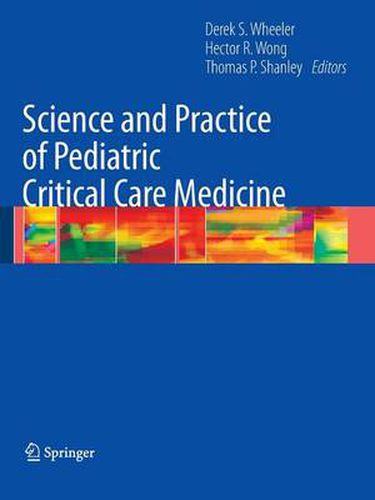Readings Newsletter
Become a Readings Member to make your shopping experience even easier.
Sign in or sign up for free!
You’re not far away from qualifying for FREE standard shipping within Australia
You’ve qualified for FREE standard shipping within Australia
The cart is loading…






This title is printed to order. This book may have been self-published. If so, we cannot guarantee the quality of the content. In the main most books will have gone through the editing process however some may not. We therefore suggest that you be aware of this before ordering this book. If in doubt check either the author or publisher’s details as we are unable to accept any returns unless they are faulty. Please contact us if you have any questions.
The ? eld of critical care medicine is in the midst of a dramatic change. Technological and s- enti? c advances during the last decade have resulted in a fundamental change in the way we view disease processes, such as sepsis, shock, acute lung injury, and traumatic brain injury. Pediatric intensivists have been both witness to and active participants in bringing about these changes. As the understanding of the pathogenesis of these diseases reaches the cellular and molecular levels, the gap between critical care medicine and molecular biology will disappear. It is imperative that all physicians caring for critically ill children in this new era have a th- ough understanding of the applicability of molecular biology to the care of these patients at the bedside in order to keep up with the rapidly evolving ? eld of critical care medicine. To the same extent, the practice of critical care medicine is in the midst of fundamental change. In keeping with the Institute of Medicine’s report Crossing the Quality Chasm, the care of critically ill and injured children needs to be safe, evidence-based, equitable, ef? cient, timely, and fami- centered [1,2]. In the following pages, these changes in our specialty are discussed in greater scope and detail, offering the reader fresh insight into not only where we came from, but also where we are going as a specialty.
$9.00 standard shipping within Australia
FREE standard shipping within Australia for orders over $100.00
Express & International shipping calculated at checkout
This title is printed to order. This book may have been self-published. If so, we cannot guarantee the quality of the content. In the main most books will have gone through the editing process however some may not. We therefore suggest that you be aware of this before ordering this book. If in doubt check either the author or publisher’s details as we are unable to accept any returns unless they are faulty. Please contact us if you have any questions.
The ? eld of critical care medicine is in the midst of a dramatic change. Technological and s- enti? c advances during the last decade have resulted in a fundamental change in the way we view disease processes, such as sepsis, shock, acute lung injury, and traumatic brain injury. Pediatric intensivists have been both witness to and active participants in bringing about these changes. As the understanding of the pathogenesis of these diseases reaches the cellular and molecular levels, the gap between critical care medicine and molecular biology will disappear. It is imperative that all physicians caring for critically ill children in this new era have a th- ough understanding of the applicability of molecular biology to the care of these patients at the bedside in order to keep up with the rapidly evolving ? eld of critical care medicine. To the same extent, the practice of critical care medicine is in the midst of fundamental change. In keeping with the Institute of Medicine’s report Crossing the Quality Chasm, the care of critically ill and injured children needs to be safe, evidence-based, equitable, ef? cient, timely, and fami- centered [1,2]. In the following pages, these changes in our specialty are discussed in greater scope and detail, offering the reader fresh insight into not only where we came from, but also where we are going as a specialty.